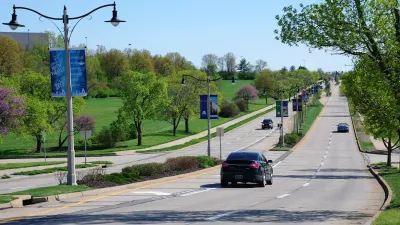U.S. Rep. Carolyn B. Maloney (D) argues that the war in Iraq is diverting billions of dollars that are badly needed to shore up America's crumbling infrastructure.
The baseline budget numbers alone are mind-numbing: more than $490 billion in federal spending on the Iraq war so far -- including interest on the war debt. That's nearly 10 times the $50 billion the Bush administration originally estimated the war would cost. Yet President Bush has asked Congress to appropriate an additional $157 billion to the war just for next year.
The untold story -- one every American needs to hear -- is that the costs of this war go beyond these budget numbers. The Congressional Joint Economic Committee has determined that if the President's 2008 funding request is approved, the full economic cost of the war -- including the economic impact of deficit financing, the future care of our wounded veterans, and disruption in oil markets -- will total $1.3 trillion just by the end of 2008.
The numbers may feel abstract, but the costs are real. The burden of war debt handed down to our children is real. The lost opportunities to invest here at home in jobs, productivity, roads, health care and education are real. And, the lives lost are real; of course, it's impossible to put a price tag on human life, the ultimate cost that too many families have had to pay.
This year alone, the President has asked Congress to spend more on the Iraq war than the nation does annually on the entire American road and highway system. At a time when our levees and bridges are crumbling, we cannot afford to stop investing in our infrastructure.
FULL STORY: U.S. suffers as dollars go to Iraq war

Planetizen Federal Action Tracker
A weekly monitor of how Trump’s orders and actions are impacting planners and planning in America.

USGS Water Science Centers Targeted for Closure
If their work is suspended, states could lose a valuable resource for monitoring, understanding, and managing water resources.

End Human Sacrifices to the Demanding Gods of Automobile Dependency and Sprawl
The U.S. has much higher traffic fatality rates than peer countries due to automobile dependency and sprawl. Better planning can reduce these human sacrifices.

Trump: Federal Government Won’t Pay for California HSR
The President has targeted federal funding for the California bullet train project since his first administration.

San Francisco Enhances Urban Planning Initiatives with Green Infrastructure
San Francisco incorporates green infrastructure in its city development initiatives, elevating the importance of sustainability in urban planning.

Chicago Approves Green Affordable Housing Plan
The Mayor’s plan calls for creating a nonprofit housing corporation tasked with building affordable housing that meets Green Building standards.
Urban Design for Planners 1: Software Tools
This six-course series explores essential urban design concepts using open source software and equips planners with the tools they need to participate fully in the urban design process.
Planning for Universal Design
Learn the tools for implementing Universal Design in planning regulations.
Tyler Technologies
New York City School Construction Authority
Village of Glen Ellyn
Transportation Research & Education Center (TREC) at Portland State University
Chaddick Institute at DePaul University
Institute for Housing and Urban Development Studies (IHS)
Regional Transportation Commission of Southern Nevada
Toledo-Lucas County Plan Commissions


























